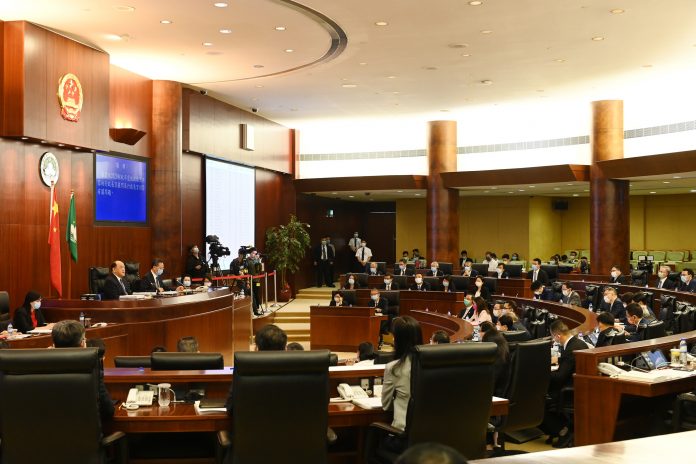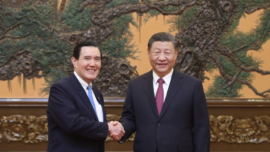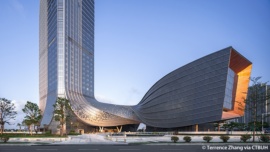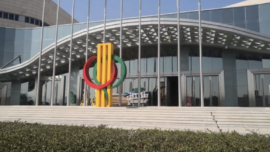“Stay one more night, visit one more day” is the government’s new goal. It remains to be seen how this will happen, and whether there will be less investment in MICE and more demands on non-gaming businesses.
MB July 2020 Special Report | Crossroads of Macau tourism
Ho Iat Seng has already said what he dislikes (the economic diversification model imposed during Chui Sai On’s terms), but he has not yet said exactly how he wants to act. He was, however, clear about the fact that the future will pass through Hengqin.
It is normal for this to be the case, firstly because the Chief Executive had barely been in office for two months when the biggest crisis we have ever known took us all by surprise; secondly, because the paradigm that will be established should take into account the new competition for the allocation of gambling concessions; and thirdly because a whole strategic plan cannot be undone and reconstructed in just a few weeks.
It is already known that the General Tourism Plan will be subject to review due to the impact of Covid-19, as announced by the director of MGTO. “Before the epidemic, we had already considered doing a revision and now we are going to do it to see what the future will be like because the tourism sector will undergo changes”, explained Maria Helena Senna Fernandes. It will also be an opportunity to include the new Government’s strategic moves.
Last April it was announced that the government has reserved MOP $3.2 billion for the next phase of economic stimulus measures to support the tourism and hospitality industries.
“Our goal is [to have visitors] stay one more night, visit one more day”, said the Secretary for Economy and Finance, Lei Wei Nong. How? Lei said the government is studying ways to promote a collaboration between the tourism industry and the local cultural and creative sectors to encourage tourists to stay longer.
“If a tourist leaves Macau on the same day they arrive, they end up spending MOP 800. But if they stay for the night, they spend MOP 2,600. Mainland tourists from cities included in the free travel scheme spend 10 percent more when they stay for one night”, the Secretary also said, emphasising that the plan was devised to attract mainland visitors as the travel conditions in China improve.
Therefore, the bet on the international market, which was announced in recent years, has been put aside (temporarily?).

The truth is that what Ho Iat Seng said in his first Policy Address – “The weight of the emerging industries on the economy in general remains relatively low. The weight of the convention and exhibition industry and of the cultural and creative industries promoted by the Government on the Gross Domestic Product does not reach 1 percent”, while the gaming industry still yields as high as 50 percent of the GDP – left many questions unanswered.
“It takes time to nurture those new industries, especially considering that Macau started doing that from scratch a few years ago”, Professor Matthew Liu, Faculty of Business Administration and Centre for Continuing Education, University of Macau explains to Macau Business. “Of course, the progress may be behind some people’s expectation; however, global political and economic turbulence in the past decade more or less significantly hampered Macau’s moderate economic diversification schedule. The Chief Executive knew the issues very well, and realized that Macau has to hurry up”, Professor Liu adds.

“The progress may be behind some people’s expectation; however, global political and economic turbulence in the past decade more or less significantly hampered Macau’s moderate economic diversification schedule” – Matthew Liu
Another issue that the Government will deal with, certainly taking advantage of the allocation of gambling licenses, is the degree of demand for the contribution of non-gaming businesses to the local GDP.
As it is public, in its “Five-Year Development Plan” (2016-2020) the government asked that non-gaming revenue within the casino sector should account on average for at least 9 percent of all revenue generated by local operators by 2020.
But official statistics indicated the goal had already been achieved by the end of 2015, when non-gaming revenue accounted for 9.39 percent of the overall revenue in the casino sector. The last figures, according to the “Interim Evaluation of the Five-Year Plan”, released by the government in October of last year, show that revenue from non-gaming businesses has now reached 9.97 percent.
This means that in four years little or nothing has changed. The Government did not demand other goals from the concessionaires, and they seem comfortable with the results.
Professor Liu warns, however, of other issues: “The goal for non-gaming sectors in terms of revenue was about MOP 22.3 billion in 2016 (out of a MOP 223.2 billion revenue from the gaming sector); but the goal for non-gaming sectors was about MOP 29.2 billion in 2019 (out of MOP 292.4 billion from the gaming sector. We are talking about the same ’10 percent’, but the absolute value and the difficulty to achieve the goal is different (between 2016 and 2019 it amounts to about MOP 7 billion!).”
So, Professor Liu adds, “We cannot easily judge that the non-gaming sector’s development is too slow; but the truth is that gaming sector’s development is too fast.”
“The good thing is that both the Macau government and casino operators know that long-term sustainable development is more critical than short-term profit”, the Professor of Marketing says, concluding with: “It’s not necessary to ‘force’ the casino operators to achieve 10 percent, the government just needs to communicate more and encourage casino operators to achieve the goal as possible as they can.”
“A more collaborative approach”
Professor Glenn McCartney, Associate Professor in International Integrated Resort Management, University of Macau, understands that the recovery from Covid-19 is “an opportunity to engage [the Government] with industry and a more collaborative approach with the private sector can provide greater consensus on a way forward for Macau.”
Professor McCartney stated on a recent research paper – The impact of the coronavirus outbreak on Macao. From tourism lockdown to tourism recovery – that “rather than a ‘rethink’ on tourism, the immense economic fallout of Macau’s casino industry will mean a focus on Macau’s core casino business and Chinese travel markets. Likewise, the city’s tourism and marketing authorities would resume their modus operandi [as it was] prior to coronavirus.”
























